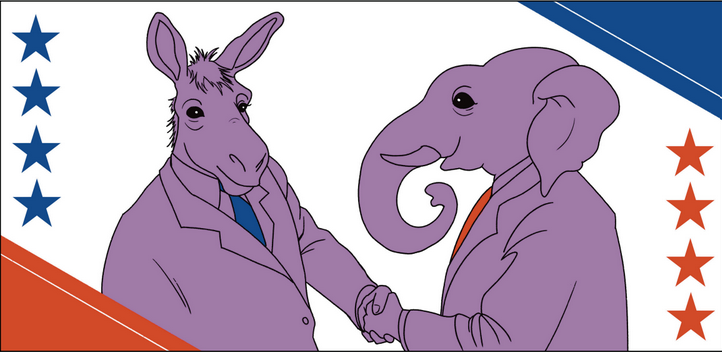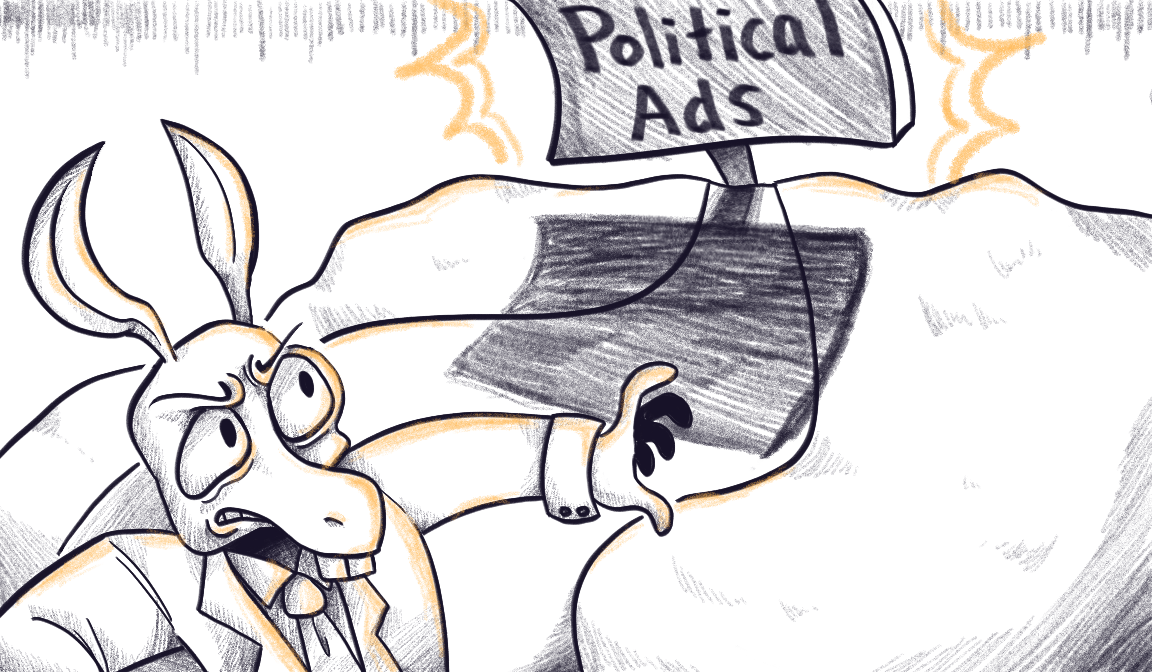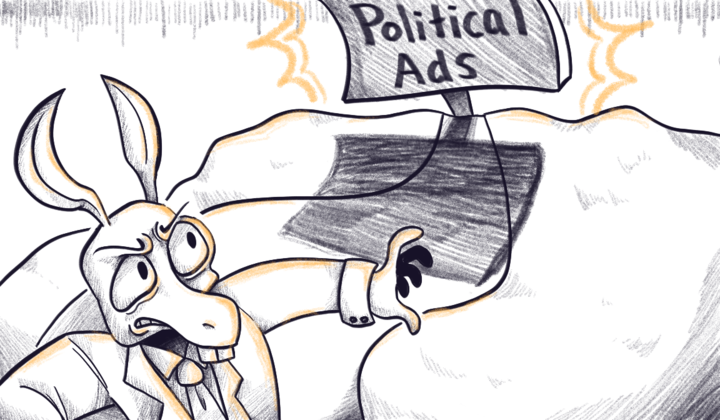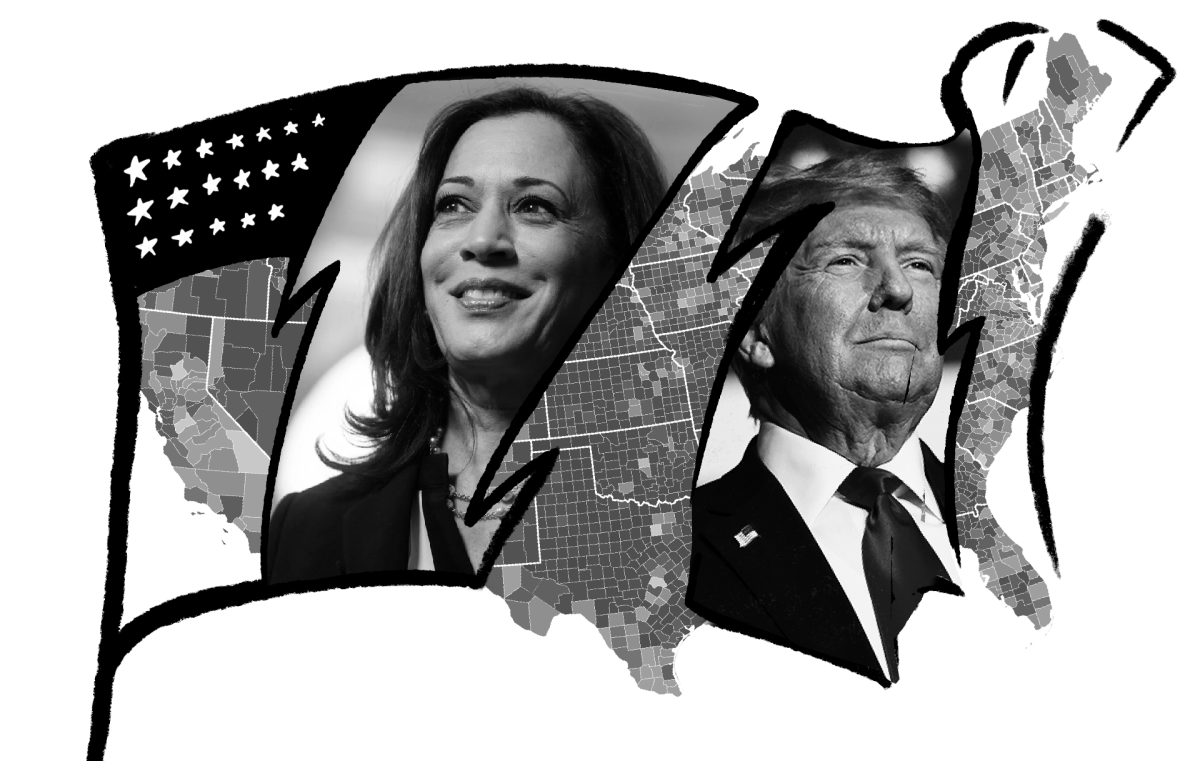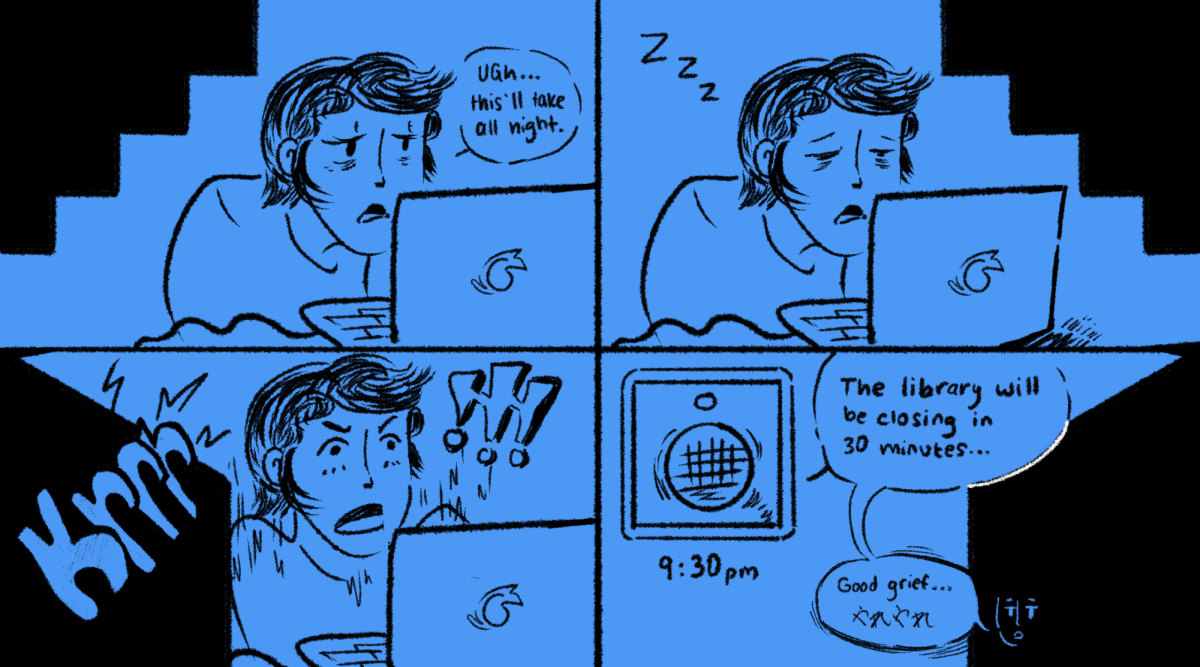From migrants eating pets in Springfield, Ohio to JD Vance engaging in unspeakable acts with his couch, partisan misinformation has pervaded our everyday lives and minds. Distrust in our country’s lawmaking institutions has been on the rise and along with it, a refusal to believe reality when it does not align with personal opinion.
This lack of political open-mindedness stems from media echo chambers that serve to amplify existing opinions. When people consume media that only caters to one side of the political spectrum, they completely close themselves off to different perspectives, creating a polarizing mindset that pervades everyday life. In a period of rampant partisanship, practicing media literacy by actively seeking diverse viewpoints will help us bridge our political differences and restore our confidence in democracy.
In the wake of the election, more people are openly denouncing being friends with those who have different political opinions, and in all fairness, I once harbored the same kind of judgment. That changed this summer when I worked as an intern at a fact-checking organization, sifting through hours of content featuring Republican personalities who I would not normally grace with my attention.
For context, I grew up in a Democratic household in Silicon Valley watching The Rachel Maddow Show and Stephen Colbert’s monologues on TV every night. For 18 years, I’ve been surrounded by liberal family, teachers, and friends. Without anyone to challenge my political views, I sheltered myself from right-wing rhetoric and remained content in my blue bubble, blindly accepting that all Trump voters and Republican politicians were either evil or morons.
So, when I found myself pleasantly fascinated by Republican lawmakers like David Schweikert and Jen Kiggans, it was a much-needed wake up call to my own ignorance and how I have been contributing to the alarming spread of hyperpartisanship. I had spent most of my life scorning Republican antics from behind a screen and avoiding places dense with Trump supporters, leaving me with no frame of reference beyond the left-leaning content I so frequently consumed. Nonetheless, although I do not share much of their ideology, I resonated with Schweikert’s speeches on relieving the national debt and Kiggans’ emphasis on improving wastewater treatment. Contrary to my preconceived notions of Republicans as the villains of our government, they add quite a lot of value to our political discourse.
It turns out that lawmakers are much more bipartisan than the media’s portrayal of stark divisions and insult-flinging. Media outlets tend to inflame controversial topics by using trigger phrases like “reproductive rights” on the left, and “illegal immigration” on the right. The slightest mention of these words often sways people towards their preexisting opinions, hindering any opportunity for meaningful discussion. Allowing our personal echo chambers to paint a misleading picture of political chaos further divides us as citizens and breaks down our trust in our government. In February, Reps. Brian Fitzpatrick (R-Pa.), Jared Golden (D-Maine), and 14 other bipartisan policy makers unveiled the Defending Borders, Defending Democracies Act, which would provide aid to Ukraine and Israel and reinstate the “Remain in Mexico” policy for another year. Both Republican and Democrat representatives worked to introduce and pass bipartisan child care legislation, such as the Supporting America’s Children and Families Act. Left-wing media mostly covers raging conservative representatives like the Freedom Caucus, Laura Loomer, and so forth, while right-wing outlets hone in on far-left “un-American” rhetoric, such as pro-Palestinian protesters and The Squad. The reality we often overlook, however, is that focusing on these kinds of partisan subjects exacerbates the disconnect between people of opposing ideologies. Just as most lawmaking efforts require compromises on both sides, we shouldn’t approach politics through such a black and white lens.
Diversity of thought and belief is essential to our policymaking system; the division among the electorate will never mend if we continue to dismiss differing opinions and avoid challenging our own ideas. Take a step out of your bubble and evaluate the information you choose to consume. You may not agree with everything the other side has to say, but at the very least, take the time to listen, and you may also find that humanizing those with alternative perspectives can help us band together towards real progress.
I will not be re-registering as a Republican and voting red anytime soon, nor will I disparage anyone who does so. Still, I feel much more comfortable in my vote because I know I took the time to weigh both sides and come to my own conclusions — not the conclusions that The New York Times and CNN came to for me.


